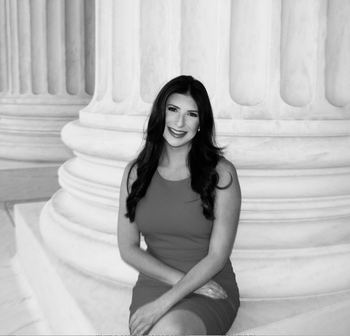Student requests U Chicago investigate campus organization's ties to the CCP
One University of Chicago student is calling on the school to investigate their Chinese Students and Scholars Association for possible ties to the CCP.
The university's Chinese Students and Scholars Association attempted to get a pro-Hong Kong speaker disinvited from speaking on campus in May.
One University of Chicago student is calling on the university to investigate their chapter of the Chinese Students and Scholars Association and its possible connection to the Chinese Communist Party.
Clark Kovacs, who currently attends the University of Chicago, wrote the op-ed for The Chicago Maroon in which he argues that the university must “act swiftly” and investigate the CSSA in light of recent campus events.
In May, when pro-Hong Kong activist Nathan Law spoke at an event hosted by the University of Chicago Harris School of Public Policy, the CSSA attempted to pressure the university into disinviting him.
[RELATED: State Department: US higher ed. undermines efforts to combat Chinese Communist Party]
The CSSA sent an email addressed to the Harris School of Public Policy, arguing that Law’s speech “falls outside the purviews of free speech,” the Chicago Maroon reported in June.
“As a non-political, cultural association, CSSA greatly values and adamantly defends freedom of speech and expression on our campus. However, the invitation of Law as a distinguished guest by the Mentor Program not only falls outside the purviews of free speech, but also has been widely perceived as exposing the insensitivities and disrespect that the Harris administration shows towards Chinese students and scholars,” the email states.
Kovacs also refers to a 2020 U.S. State Department report which states that CSSAs were created for the purpose of monitoring “Chinese students and mobilize them against views that dissent from the CCP’s stance.”
The report also states that “CSSAs ‘frequently attempt to conceal’ their ties to the CCP, and ‘are active in carrying out overseas Chinese work consistent with Beijing’s United Front strategy.’”
[RELATED: House Republicans urge Biden to reconsider rule on CCP’s Confucius Institutes]
For these reasons, Kovacs states that the CSSA is likely “directed by the CCP” to stifle free speech.
”Thus, given the history of the CSSA in general and the recent actions of the UChicago CSSA regarding Law, it is reasonable to suspect, despite persistent claims to the contrary, that they are directed by the CCP to stifle the free speech of anyone who dissents from party ideology,” Kovacs states.
When Kovacs asked the University of Chicago CSSA for comment, the group denied the allegations of being connected to the CCP.
“We are greatly saddened that somehow we’ve become a target, and that some people are trying to intentionally politicize us,” the group stated.
According to an article written by The Heritage Foundation in February, “With an annual budget of an estimated $2.6 billion, the United Front Work Department has influenced American universities, academic presses, think tanks, schools and school boards, corporations, movie companies, and political lobbying.” It goes on to state, “Chinese Student and Scholars Associations (CSSAs) are a more direct vector of Chinese Communist Party influence on American campuses.”
Kovacs did not give additional comments to Campus Reform.
Campus Reform reached out to the University of Chicago CSSA for comment, as well as the University of Chicago, but did not receive a response.


